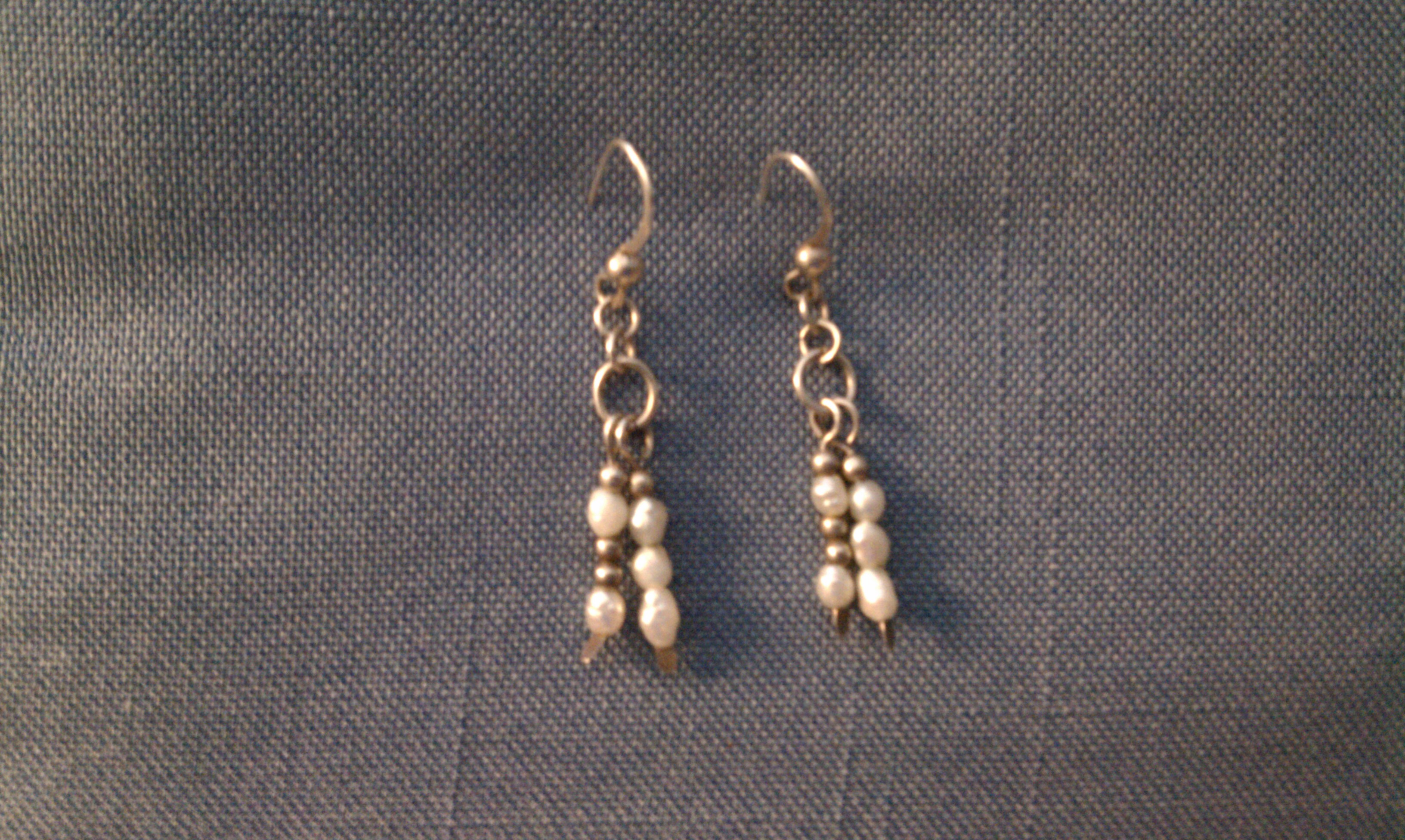 On Mother’s Day, when he was eleven or twelve, my son gave me a pair of earrings – dangling strings of tiny freshwater pearls. I was surprised when I opened the little box he sheepishly handed me to find such a personal and beautiful gift.
On Mother’s Day, when he was eleven or twelve, my son gave me a pair of earrings – dangling strings of tiny freshwater pearls. I was surprised when I opened the little box he sheepishly handed me to find such a personal and beautiful gift.
The earrings must be inexpensive, because he bought them with his own pocket money, but they are precious to me. They were the first gift my son gave me that he chose on his own, without anyone’s assistance, and he made a lovely choice.
My son had gone with his friend and the friend’s mother to some craft show. That isn’t the kind of event I would patronize, so I doubt my son had ever seen such an extravaganza of homemade merchandise for sale. And had I been the one to suggest the outing, I doubt he would have agreed to accompany me. But he wanted to spend the day with his friend, and that’s what the friend’s mother had planned, so my son tagged along.
His friend’s mother later described for me how my son had shopped for the earrings. “He was so sweet. He looked at every pair, back and forth from one to another, trying to decide which you would like best. The little pearls were what he finally chose.”
Unlike me, my son has always had a hard time making choices. On the Myers-Briggs scale, I generally test as an ISTJ (Introverted Sensing Thinking Judger). I am extremely strong on Judging – which means I will make a decision on a split second, whether I have all the facts or not. My son tests the opposite as me. He is an ENFP (Extroverted Intuitive Feeling Perceiver). He is as far out on the Perceiving scale as I am on the Judging – he can’t decide what to have for breakfast without wondering if he is restricting all his future life options.
So the gift of the pearl earrings was all the sweeter for having been my son’s choice – a selection he made with me in mind.
Our son went through some difficult times as a teenager – the normal resistance to parents trying to control him when he no longer wanted (or needed) to be controlled. He tested his limits, as most kids do when they don’t think they need limits, but aren’t yet old enough to realize that we all need limits.
When my teenage son tried my patience, I opened my jewelry box and saw the earrings he gave me. And I smiled, remembering his pre-teen self spending his own money to buy something he thought I would like.
During and after my son’s teenage years, I was on my corporate employer’s Diversity Council. The Council members talked about diversity being more than racial and gender differences. We described diversity as including such things as education, family status, and personality style. I had no difficulty with this concept, because my son was my example of diversity. Though his personality was different from mine, though he often resisted and resented his parents, he had many gifts, and one of them was his thoughtfulness, as displayed in the gift of the earrings.
 It has now been about twenty years since my son gave me the little freshwater pearls. Each time I open my jewelry box, I remember him with all his dissimilarities. I think of him poring over his choice of earrings and picking these out for me. And I realize that love overcomes all our differences.
It has now been about twenty years since my son gave me the little freshwater pearls. Each time I open my jewelry box, I remember him with all his dissimilarities. I think of him poring over his choice of earrings and picking these out for me. And I realize that love overcomes all our differences.
What have the different personalities in your family taught you?




This is such a beautiful story!
Thank you. Theresa
[…] distant journey was another example of diversity within our family. The hiking style each member of our family adopted was a clear snapshot of his or her […]
[…] I’ve mentioned before that my son and I are almost complete opposites on the Myers-Briggs personality types. I am an ISTJ (or an INTJ, depending on the day). He is an ENFP. As a J (Judging type), I make decisions very quickly, often too quickly. Like most Ps (Perceiving type), my son has difficulty relinquishing any of his options, even on minor matters. […]